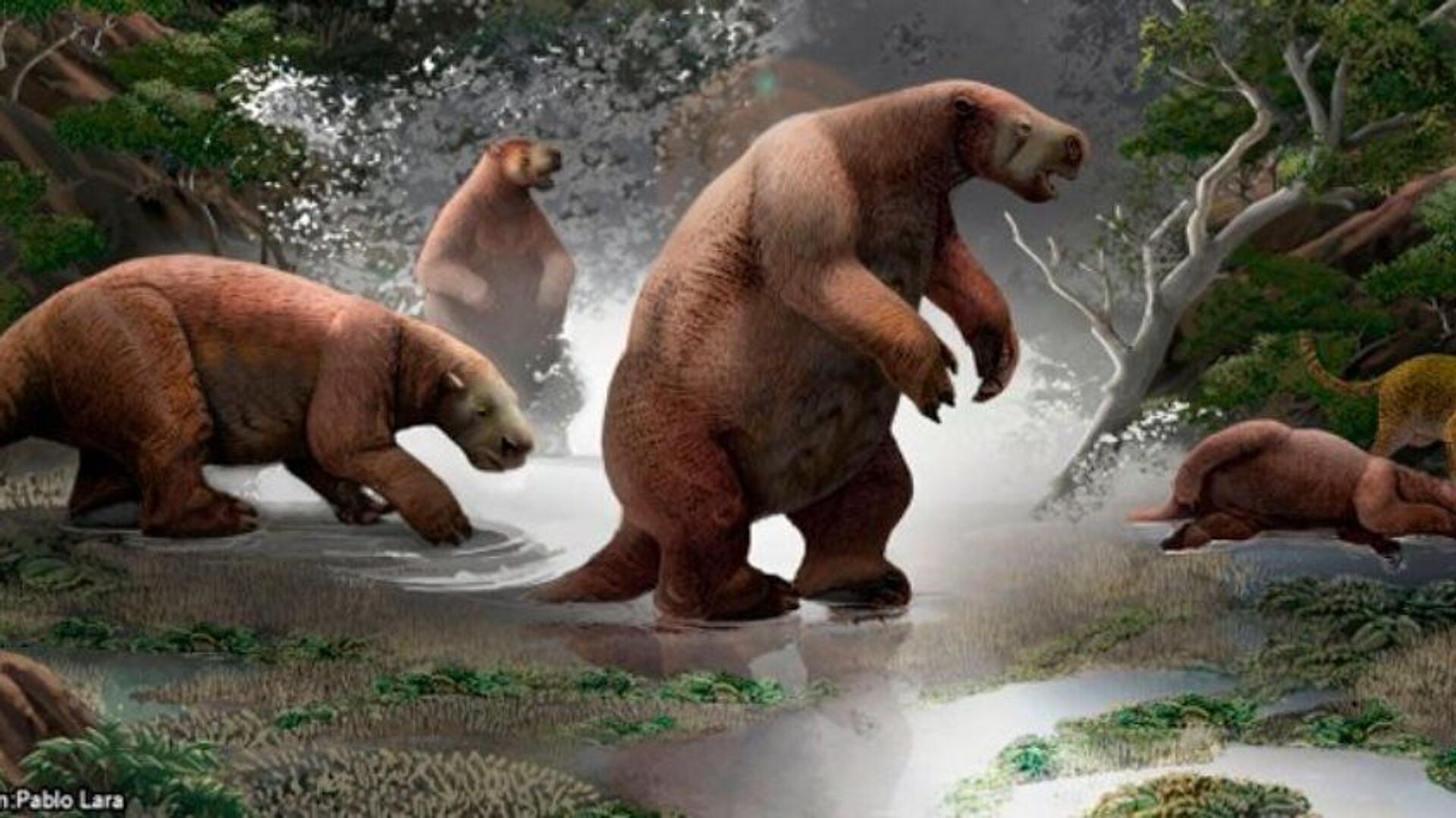https://sputnikglobe.com/20220318/we-will-go-extinct-but-thats-okay-earths-history-suggests-new-life-forms-will-substitute-humanity-1093988444.html
We Will Go Extinct But That's Okay: Earth's History Suggests New Life Forms Will Substitute Humanity
We Will Go Extinct But That's Okay: Earth's History Suggests New Life Forms Will Substitute Humanity
Sputnik International
The possible extinction of humanity has long troubled the minds of scientists and others. There have been many "apocalypse" predictions, but will the end of... 18.03.2022, Sputnik International
2022-03-18T16:13+0000
2022-03-18T16:13+0000
2022-11-03T19:33+0000
science & tech
extinction
earth
https://cdn1.img.sputnikglobe.com/img/107856/26/1078562607_88:0:938:478_1920x0_80_0_0_0f480af742869a2d4e4b7c967da1ed22.jpg
Over 550 million years ago, our world was a totally different place, inhabited by creatures that are vaguely similar to those we have now - and our planet is still "a world in the making", Thomas Halliday, a Fellow in Earth Sciences at Birmingham University, explains in his new book, reviewed by The Daily Mail.According to Halliday, unless we pursue massive global cooperation, the world will probably enter another era of mass extinction, losing all flora and fauna (including humans), similar to the one that killed the dinosaurs 65 million years ago.However, this tragic scenario for humanity will not be as tragic for the planet, as it will blossom with "unimaginable new species better suited to this hothouse Earth", Halliday asserts based on his understanding of natural history.The scientists estimated that it will take a few million years for new life forms to evolve on our planet which would substitute humans and the species we know today. Halliday also looked back at the flora and fauna that the Earth had millions of years ago, and the journey that many species (for example, beavers, hedgehogs, monkeys and guinea pigs) underwent. According to the scientist,many animals travelled accidentally from Africa to South America on huge rafts of vegetation riding the ocean currents, surviving a several-week-long ocean voyage.Millions of years ago, one mass extinction was driven by a giant torrent of water that flew over the top of the Gibraltar land-bridge which had sealed off the soon-to-form Mediterranean Sea from the Atlantic. In his book, Halliday does not try to make predictions regarding what could be the reason for the next extinction, but definitely reminds us that the world does not seem to revolve around us humans exclusively.
earth
Sputnik International
feedback@sputniknews.com
+74956456601
MIA „Rossiya Segodnya“
2022
News
en_EN
Sputnik International
feedback@sputniknews.com
+74956456601
MIA „Rossiya Segodnya“
Sputnik International
feedback@sputniknews.com
+74956456601
MIA „Rossiya Segodnya“
science & tech, extinction, earth
science & tech, extinction, earth
We Will Go Extinct But That's Okay: Earth's History Suggests New Life Forms Will Substitute Humanity
16:13 GMT 18.03.2022 (Updated: 19:33 GMT 03.11.2022) The possible extinction of humanity has long troubled the minds of scientists and others. There have been many "apocalypse" predictions, but will the end of the human race, should it happen, necessarily amount to the end of the world?
Over 550 million years ago, our world was a totally different place, inhabited by creatures that are vaguely similar to those we have now - and our planet is still "a world in the making", Thomas Halliday, a Fellow in Earth Sciences at Birmingham University, explains in his new book, reviewed by
The Daily Mail.
According to Halliday, unless we pursue massive global cooperation, the world will probably enter another era of mass extinction, losing all flora and fauna (including humans), similar to the one that killed the dinosaurs 65 million years ago.
However, this tragic scenario for humanity will not be as tragic for the planet, as it will blossom with "unimaginable new species better suited to this hothouse Earth", Halliday asserts based on his understanding of natural history.
The scientists estimated that it will take a few million years for new life forms to evolve on our planet which would substitute humans and the species we know today.
Halliday also looked back at the flora and fauna that the Earth had millions of years ago, and the journey that many species (for example, beavers, hedgehogs, monkeys and guinea pigs) underwent. According to the scientist,many animals travelled accidentally from Africa to South America on huge rafts of vegetation riding the ocean currents, surviving a several-week-long ocean voyage.
Millions of years ago, one mass extinction was driven by a giant torrent of water that flew over the top of the Gibraltar land-bridge which had sealed off the soon-to-form Mediterranean Sea from the Atlantic.
In his book, Halliday does not try to make predictions regarding what could be the reason for the next extinction, but definitely reminds us that the world does not seem to revolve around us humans exclusively.

